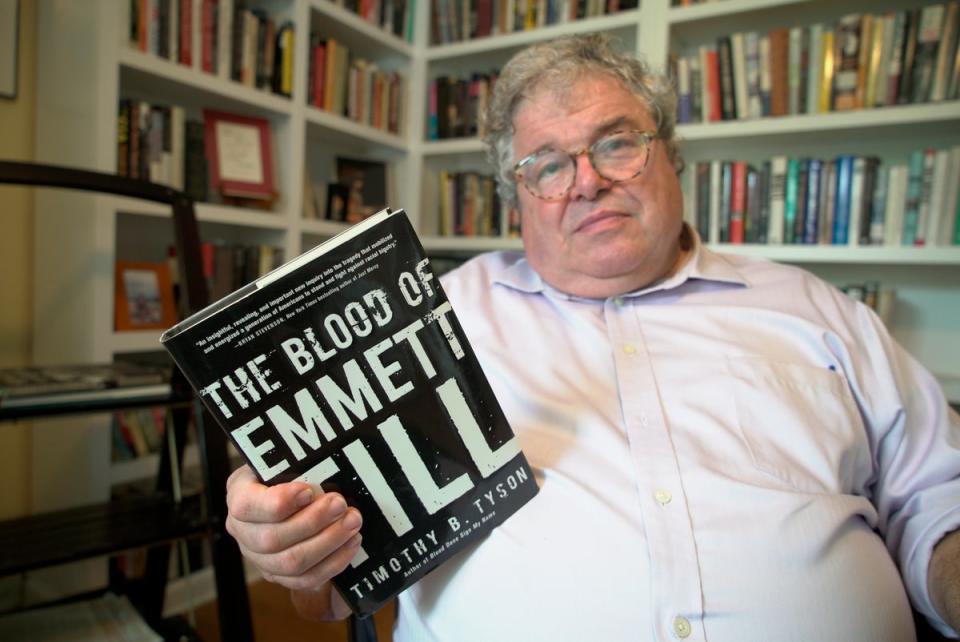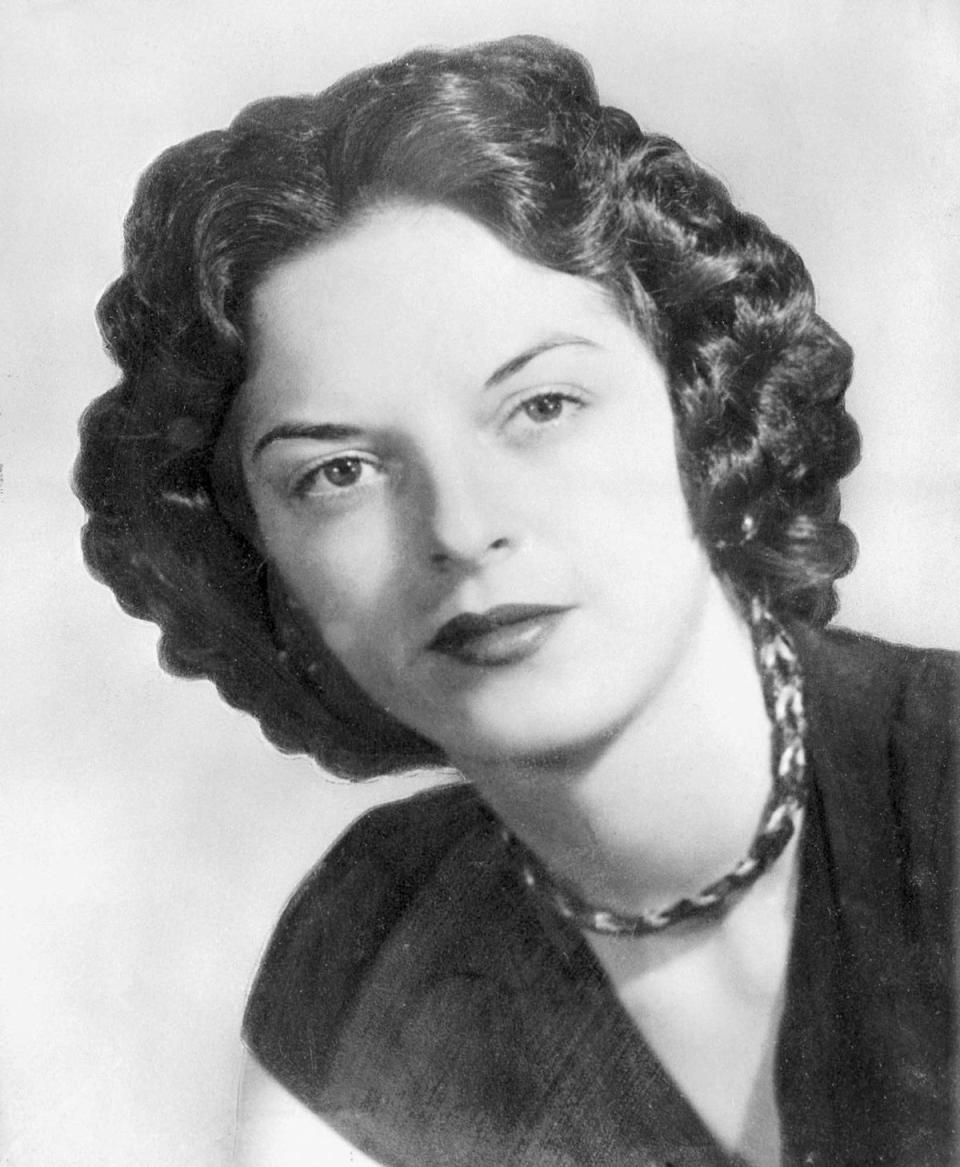OLD Emmett Till’s accuser Carolyn Bryant Donham dies, family is still searching for justice

Emmett Till was kidnapped, tortured, beaten and shot before his body was tied to fan blade and weighed down in a river in Mississippi in 1955.
The men who killed the 14-year-old Black boy were acquitted by an all-white jury. They admitted to their crimes in a magazine interview a few months later. Both men have since died.
Nobody has been convicted for Till’s death, which galvanised a civil rights movement and attracted nationwide attention to lynchings and racist killings of Black Americans, underscoring the brutal legacy of segregation and shadows of Jim Crow-era violence.
His mother Mamie Till-Mobley, who died in 2003, was pictured in a defining image at his open casket funeral in Chicago. “I wanted the world to see what they did to my boy,” she said at the time.
Nearly 70 years later, on 9 August, a grand jury in Leflore County declined to indict Carolyn Bryant Donham, who was 21 years old when she testified in court that Till sexually harassed her inside a store.
In June, an unserved warrant charging Ms Donham along with her then-husband Roy Bryant and brother-in-law JW Milam was discovered in a county courthouse basement. After Till’s murder, Ms Donham was never taken into custody or charged with any crime in the decades that followed.
Following several hours of testimony from investigators and witnesses, a grand jury determined there was not enough evidence to indict Ms Donham on charges of kidnapping and manslaughter, making it unlikely that the now-88-year-old woman or any other figures tied to the case will face prosecution for Till’s death.
“The murder of Emmett Till remains an unforgettable tragedy in this country and the thoughts and prayers of this nation continue to be with the family of Emmett Till,” District Attorney Dewayne Richardson said in a statement.
#NoTrueBill for #CarolynBryantDonham
Her actions, and the unserved warrant proves her culpability.#JusticeForEmmettTill Continues❗
We will Never Give Up#EmmettTill's death will not be in Vain❗
We will keep our promise to #MamieTillMobley and hold any accomplice accountable. pic.twitter.com/gTGgucZ8VC— EmmettTillLegacyFdn (@EmmettTill) August 9, 2022
The Rev Wheeler Parker Jr, Till’s cousin and the last living witness to his abduction in 1955, said in a statement that the grand jury’s decision is “unfortunate, but predictable.”
“The prosecutor tried his best, and we appreciate his efforts, but he alone cannot undo hundreds of years of anti-Black systems that guaranteed those who killed Emmett Till would go unpunished, to this day,” he said.
“The fact remains that the people who abducted, tortured, and murdered Emmett did so in plain sight, and our American justice system was and continues to be set up in such a way that they could not be brought to justice for their heinous crimes.”
The lynching of Emmett Till
The year before Emmett Till was killed while visiting relatives in Money, Mississippi, the US Supreme Court overturned the “separate but equal” doctrine in its landmark Brown v Board of Education case to end legal segregation. Cities and states across the US resisted the court with violence and in protracted legal battles that took decades to resolve, with their legacies imprinted in private schools that fought integration and in deteriorating public school systems nationwide.
More than 6,500 people, mostly Black Americans, were killed in racist attacks between 1865 and 1950. That time period encompassed the aftermath of the US Civil War and emancipation, white militia terror during Reconstruction, and the years surrounding the Civil Rights movement, according to the Equal Justice Initiative.
In the year after the Supreme Court’s ruling in the Board case, several public acts of racist violence in Mississippi preceded Till’s killing. The Rev George Lee – the first Black man to register to vote in Humphreys County in decades – was fatally shot for doing so. In Lincoln County, Lamar Smith was shot to death for telling people to register.

In the early hours of 28 August, 1955, Roy Bryant and JW Milam kidnapped Till at gunpoint from his uncle’s home and brought the 14-year-old to Ms Donham to identify.
Ms Donham, according to an unpublished memoir viewed by the Associated Press, claimed that she did not recognise Till.
After Till’s uncle Mose Wright reported his abduction to the Leflore County Sheriff, Mr Bryant and Mr Milam were arrested on Aug 29 and held in jail without bond on kidnapping charges.
Two days later, Till’s body was pulled from the Tallahatchie river.
Federal investigators open – and close – two cases
In 2004, the US Department of Justice opened an investigation to potentially weigh state-level charges in the case, though a grand jury declined to issue any indictments in 2007, and federal prosecutors closed their inquiry.
A federal investigation reopened in 2018 following the publication of Timothy Tyson’s The Blood of Emmett Till. The author said Ms Donham told him in a 2008 interview that her trial testimony was false – though her family has denied that she ever recanted her testimony.
The Justice Department renewed its probe after Ms Donham also “denied to the FBI that she ever recanted her testimony and provided no information beyond what was uncovered during the previous federal investigation,” according to federal prosecutors.
Federal prosecutors closed the investigation a second time in December 2021, claiming to find “no new evidence” suggesting that either Ms Donham or any other living person was involved in Till’s abduction and murder.
“Even if such evidence could be developed, no federal hate crime laws existed in 1955, and the statute of limitations has run on the only civil rights statutes that were in effect at that time,” the agency said in a statement.
“As such, even if a living suspect could now be identified, a federal prosecution for Till’s abduction and murder would not be possible,” according to investigators.

In March, the office of Mississippi Attorney General Lynn Fitch also said investigators were unlikely to open another case.
“This is a tragic and horrible crime, but the FBI, which has far greater resources than our office, has investigated this matter twice and determined that there is nothing more to prosecute,” chief of staff Michelle Williams said in a statement.
But the discovery of the warrant for Ms Donham’s arrest – which the Leflore County sheriff did not issue at the time because he did not want to “bother” her – amounted to new evidence, according to the Emmett Till Legacy Foundation.
Ms Donham, who was most recently living in North Carolina, has not publicly commented on recent calls for her prosecution. Her actions and the unserved warrant “proves her culpability,” according to the Emmett Till Legacy Foundation.
Till’s death “will not be in vain,” the group announced on social media following the grand jury announcement on 9 August. “We will keep our promise to [Mamie Till-Mobley].”
More than a century after such legislation was first introduced, President Joe Biden signed the Emmett Till Anti-Lynching Act into law, making lynching a federal hate crime.
The law designates lynching as a crime punishable by up to 30 years in prison. It passed the House of Representatives on 7 March by a vote of 433-7 and cleared the US Senate by unanimous consent.

 Yahoo News
Yahoo News 
